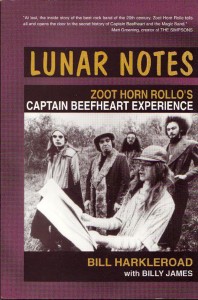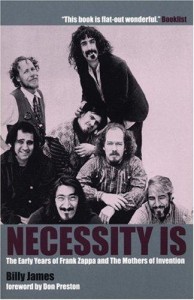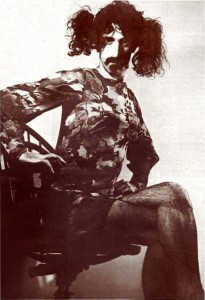(Bill Harkleroad with Billy James; 125 pages; Gonzo Multimedia, Re-released 2013)
Short and to the point (94 pages of text plus a preface and foreword along with several pages of rare and personal photos), Bill Harkleroad recounts his days as one of the most well-known members of Captain Beefheart’s Magic Band. Dubbed Zoot Horn Rollo by the Captain himself, Don Van Vliet, Harkleroad joined the group as an eighteen year old, just in time for the grueling rehearsal sessions for what would become – arguably – the band’s most-beloved (by the fans, anyway) album, TROUT MASK REPLICA.
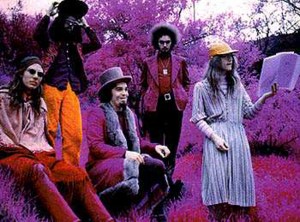
Like Van Vliet’s high school buddy, Frank Zappa, the Captain was a dictatorial band leader. Unlike Zappa, however, Beefheart’s musical vision was scattered and unfocused, relying on the musicians to turn his various thoughts into a close approximation of that vision. He would dub a different member of the band “the bad guy” each day, fraying nerves and causing friction. This practice led to a heavy rate of turnover, eventually leading to Harkleroad becoming the “musical director” of the Magic Band. He would be the person that Van Vliet would call in the middle of the night, whistling a melody or thematic thread into the phone. It was his job to turn those threads into musical notations and to help the rest of the band turn them into a somewhat cohesive tune. The process was exacerbated by Van Vliet’s reluctance to practice with the band (if he bothered to show up at rehearsals at all). At least, Zappa actually attended his marathon rehearsal sessions, armed with ideas and music ready to play.
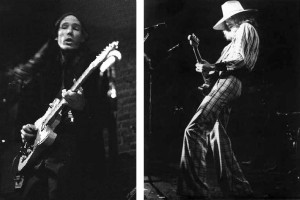
So, this is a “let’s bash the eccentric frontman” type of memoir, right? Wrong! Harkleroad (and, really, just about every player who ever shared a stage – or recording session – with Don Van Vliet) did butt heads with the enigmatic Captain, but maintained a deep, heartfelt love and an emotional tie that continued, at least, until the original taped remembrances (LUNAR NOTES was originally released in 1998 and has been out of print for more than 10 years) that make up this book. In Harkleroad’s preface, he mentions his reticence to doing a book like this, primarily because he wasn’t a writer. Noted publicist, musician and biographer of several outre artists (The Mothers, Todd Rundgren, Michael Bruce among others), Billy James, took up the mantel of “co-author.” James’ involvement allowed Bill to reminisce in a rather scattered, stream-of-consciousness way, with Billy cleaning up and streamlining the stories into a chronological order that takes us through Harkleroad’s first meeting with the Captain and His Magic Band in 1967 through his departure from the group in 1974 and the formation and dissolution of the band Mallard. The final part of the book recounts his life to that point (approximately 1996 through 1998) following Mallard and his ultimately coming to terms with his history and pedigree. That final chapter is entitled “I Am Zoot Horn Rollo.”

I have long been a fan of Captain Beefheart’s music. Yes, his lyrics and vocal delivery are a large part of what I enjoy about the music, but – equally important to me – was the musical acumen of the Magic Band. The inherent groove of almost every album draws me in, something I don’t believe would have been possible with other players. Bill Harkleroad, as Zoot Horn Rollo, was a major part of those late ’60s and early ’70s albums that I love so much. This book gives me insight into those times and the imaginative and talented musicians who created that music. For that, I must say, “Thank you, Rollo, for this book.” For any Beefheart or Zappa fan, this is a must read!

